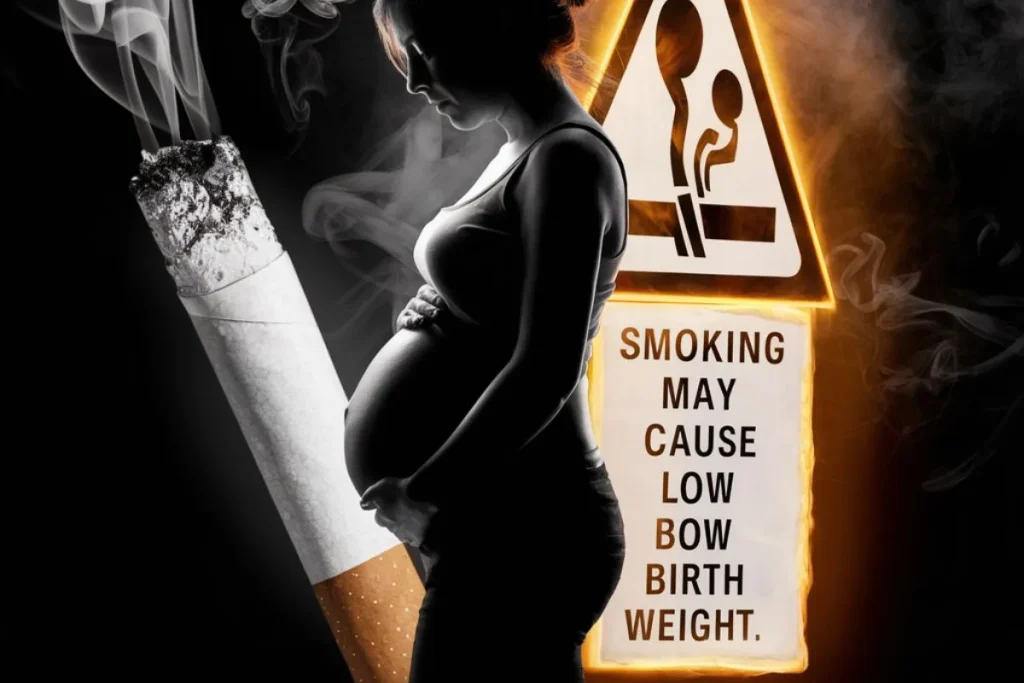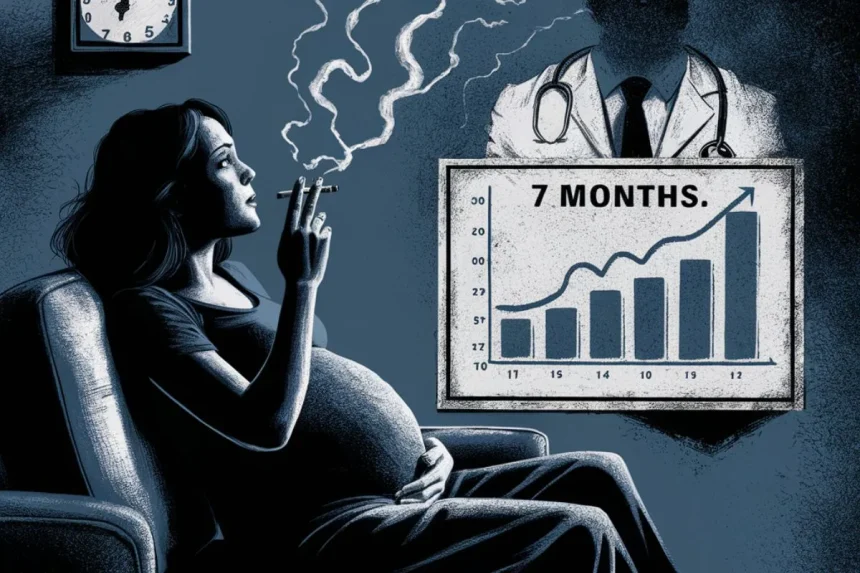Introduction
Smoking during pregnancy is a hazardous habit due to nicotine addiction, posing serious risks to both the mother and the unborn child. It significantly increases the chances of complications such as stillbirth, preterm birth, and miscarriage. Furthermore, secondhand smoke can also endanger the fetus. Understanding the dangers and taking steps to quit smoking is vital for ensuring the health of both mother and baby.
The Harmful Chemicals in Cigarette Smoke
Cigarette smoke contains approximately 4,000 harmful chemicals, including carbon monoxide, nicotine, and tar. These chemicals enter the mother’s bloodstream through the lungs, raising her heart rate and potentially affecting the developing fetus through the placenta. This can restrict the baby’s oxygen supply, leading to growth and developmental issues.
Risks to the Unborn Child
Still birth and Miscarriage
Exposure to harmful chemicals in smoke can increase the risk of miscarriage in the first trimester and stillbirth after 20 weeks. Smoking can cause placental problems or slow fetal development, raising these risks.
Premature Birth
Smoking during pregnancy can lead to preterm birth, resulting in an underdeveloped baby. Premature infants face numerous health issues, including cognitive impairments, learning disabilities, hearing and visual problems, and severe medical complications.

Low Birth Weight
Babies born to mothers who smoke are often smaller and have low birth weights. This can result in significant health problems, such as developmental delays, vision and hearing issues, and cerebral palsy. In extreme cases, low birth weight can be fatal.
Birth Defects
Smoking during pregnancy increases the risk of congenital heart defects, cleft palate, and cleft lip.
Risks to the Mother
Placental Abruption
Smoking can cause the placenta to detach from the uterus before childbirth, leading to a condition known as placental abruption. This can cause severe bleeding, endangering both the mother and the baby. Immediate medical attention is essential, as there is no treatment to reattach the placenta.
Ectopic Pregnancy
Nicotine can cause contractions in the fallopian tube, leading to ectopic pregnancy, where the fertilized egg implants outside the uterus. The only treatment is to remove the embryo to prevent life-threatening complications for the mother.
Placenta Previa
Smoking is a risk factor for placenta previa, where the placenta grows in the lower part of the uterus and covers the cervix. This can cause tearing and excessive bleeding, depriving the fetus of oxygen and nutrients.
Long-Term Effects on the Child
Respiratory Issues
Children exposed to cigarette smoke in utero are more likely to develop respiratory conditions like asthma, chronic bronchitis, and chronic obstructive pulmonary disease (COPD).
Sudden Infant Death Syndrome (SIDS)
Babies exposed to cigarette smoke are at a higher risk of sudden infant death syndrome. The harmful components of smoke can coat the lungs’ mucosal surfaces, increasing susceptibility to life-threatening infections.
Conclusion
Smoking during pregnancy poses severe risks to both the mother and the unborn child. Quitting smoking is essential to ensure a healthy pregnancy and reduce the likelihood of complications. Protecting the baby’s health starts with the mother’s commitment to quit smoking.
Quit Smoking! Stay Safe & Healthy!







